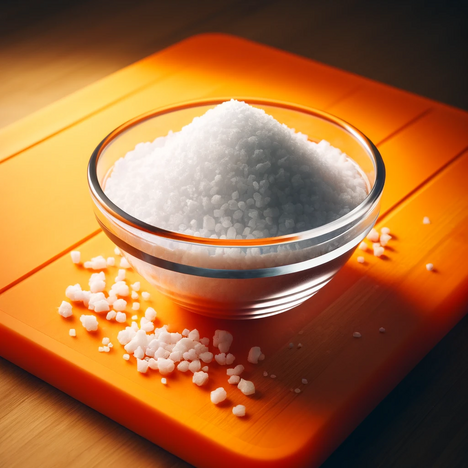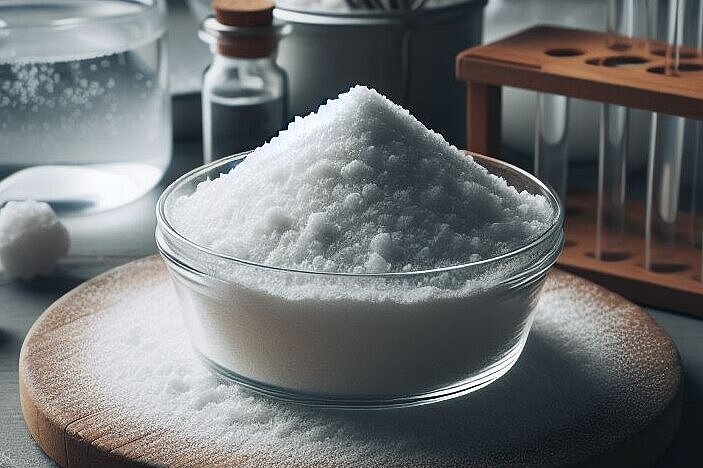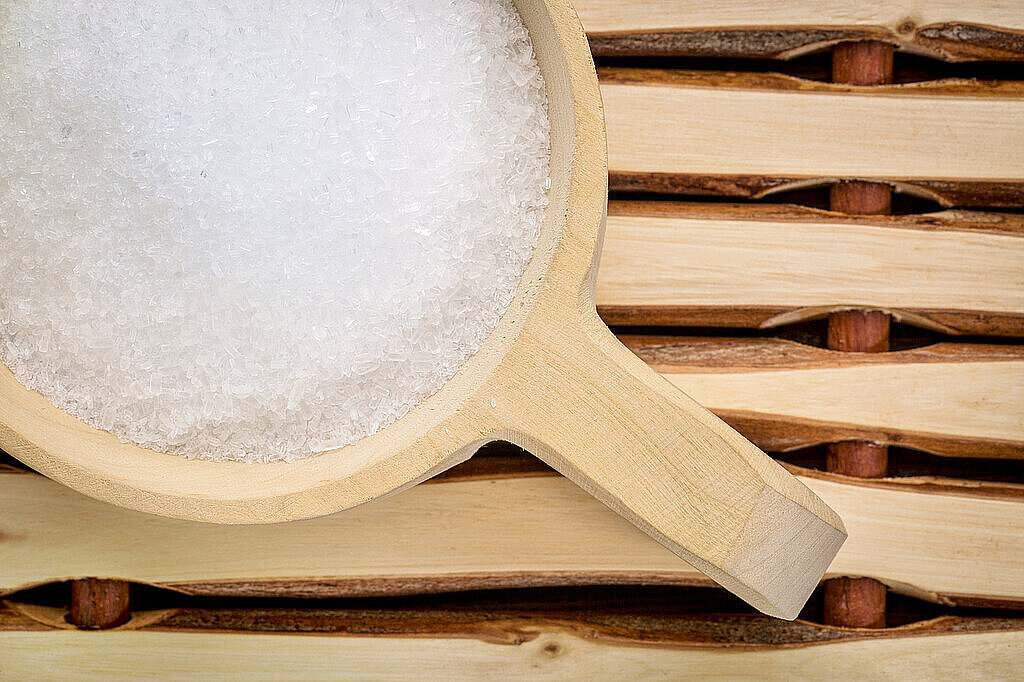Sodium carbonate

What is sodium carbonate?
Chemical properties and use
Sodium carbonate, also known as soda ash or washing soda (chemical formula: Na2CO3), is a white, crystalline powder that is highly soluble in water and forms a strongly alkaline solution. It is used in a variety of industrial processes, including glass production, paper manufacturing and as a water softener. In the food industry, sodium carbonate is used as an acidity regulator and release agent.
Occurrence in dog-related products
Although sodium carbonate is primarily found in household and industrial products, it can occasionally appear in products intended for dogs, such as certain grooming products or as an additive in some specialized dog foods.
Benefits of sodium carbonate for dogs
Effectiveness as a cleaning agent
In grooming products, sodium carbonate can help to effectively remove stubborn stains and odors from dogs' coats. As an ingredient in shampoos or washing solutions, it can provide a more thorough clean.
Contribution to skin health
Used in correct, diluted amounts, sodium carbonate can help neutralize oily buildup on a dog's skin and keep the coat fresh and clean. However, it should be used with caution to avoid skin irritation.
Disadvantages and risks
Potential toxicity and hazards
The main concern about sodium carbonate is its strong alkalinity. If used in too high concentrations or accidentally ingested by dogs, sodium carbonate can cause serious health problems, including digestive upset, chemical burns or even poisoning.
Skin and eye irritation
On direct contact, sodium carbonate can irritate the skin and eyes of dogs, causing redness, itching and discomfort. Particularly sensitive dogs may react more strongly to this substance.
Danger of oral ingestion
Accidental ingestion of products containing sodium carbonate can cause vomiting, diarrhea and, in severe cases, dehydration and electrolyte imbalance in dogs.
Caution and responsibility required
Sodium carbonate can provide grooming and potentially nutritional benefits for dogs in certain situations and in strictly controlled amounts. However, the potential risks and dangers associated with its use require a high level of caution and responsibility on the part of dog owners. It is important to keep products containing sodium carbonate safe and out of the reach of dogs and only use them according to instructions.
If you notice any signs of hypersensitivity or poisoning in your dog, you should see your vet immediately. We are not a substitute for a vet, but we try to be as accurate as possible. Every dog reacts differently and we recommend you get a second opinion or consult your vet if in doubt.
Stay healthy and take good care of your four-legged friend!😊
Similar to Sodium carbonate
The benefits of sodium bicarbonate for dogs Sodium bicarbonate has some positive effects for dogs due to its alkaline property. This means that it can neutralize acids. Here are some examples of how...
Potassium carbonate is a salt that is formed by the reaction of potassium hydroxide with carbon dioxide. It is soluble in water and forms an alkaline solution. Potassium carbonate is an important...
The daily requirement of pure calcium varies depending on the body weight and age of the animal. A puppy needs more calcium than an adult dog as it is still growing. A dog weighing 10 kg, for...
Magnesium carbonate is a compound of magnesium and carbonic acid, which can occur in various forms. It is a white, odorless and tasteless powder that is slightly soluble in water. Magnesium...



